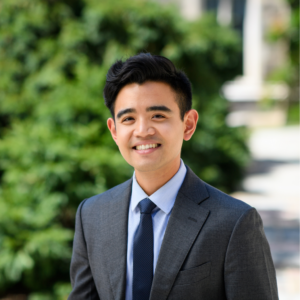The “Gay Civil War”: How to Grapple With Public Shaming in a Health Crisis
By Mark Minshen Lee
When images of crowded house parties and pool romps at New York’s upscale Fire Island made their way across gay Twitter last July, the condemnation was swift. Amid a deadly pandemic, how could so many people blatantly ignore public health guidelines and put others at risk?
Yet, even as the U.S. was shattering daily COVID-19 records over the winter holidays, the parties raged on. At the turn of the year, numerous media outlets reported on LGBTQ travelers flocking en masse to massive New Year’s events in Puerto Vallarta, Rio de Janeiro, Atlanta, Miami, Los Angeles, and other cities, all organized in violation of local policies implemented to stop the spread of the disease.
Months later, as vaccinations increase and society braces for a post-COVID world, it can be instructive to reflect on the ways in which power and wealth have shaped our unique experiences during the health crisis.
The LGBTQ community is certainly not the only group of Americans with individuals who have blatantly defied coronavirus safety protocols, including jetting abroad for leisure. At the same time, conversations surrounding COVID-19 safety and privilege have been particularly heated in online LGBTQ spaces, perhaps due to way in which queer and trans identities cut across all social classes, racial groups, and geographies, resulting in differential experiences during the pandemic.
In a budding “gay civil war,” snarky whistleblower accounts like @gaysovercovid have gone viral on Instagram for highlighting how wealthy gay men have continued to hold high-end parties and travel internationally during the pandemic. In response, apologists have countered with op-eds, podcasts, think pieces, and countless online comments admonishing netizens for too quickly condemning partygoers. Some have argued that the incriminating posts amount to “cancel culture” or public shaming, reminiscent of the hateful rhetoric hurled against LGBTQ communities to “justify” and ignore our suffering during the AIDS crisis.
After being alerted by online whistleblowers, Brazilian authorities shut down a circuit party with approximately 2,000 attendees in Rio de Janeiro, December 29, 2020. Image source: Instagram user @gaysovercovid
I will admit, this comparison initially made me question whether social media callouts were the appropriate public health response to unsafe and potentially harmful activities.
Like many queer people, I have a deeply personal relationship with shame. Some of my earliest memories involve being bullied by peers or admonished by adults for being gender nonconforming. Too many trans and queer youth are taught to conceal the “shameful” aspects of ourselves, often with long-term consequences for our well-being.
Indeed, there is a long history of societies and governments using shame as a tool to systematically oppress LGBTQ people and censure our behavior. For decades, the taboo of the pink triangle kept survivors of Nazi persecution silent about the horrors they faced in concentration camps. Authorities in Chechnya have used shame to humilitate and torture gay men and encourage their families to carry out horrific “honor killings.” Both here and abroad, a culture of shame directly contributes to the epidemic of violence that disproportionately robs Black and brown trans lives.
But in recent years, we have also seen public shame serve a rather dramatic, socially valuable purpose.
The #MeToo Movement received mainstream recognition only after survivors putting their assaulters on blast, leading several state lawmakers to update policies on sexual assault, rape kits, and workplace harassment. Viral videos of Amy Cooper and BBQ Becky have raised awareness of how white people often utilize the police to terrorize Black communities, which the State of New York has now made illegal. And in light of the murders of George Floyd and Breonna Taylor, activists and journalists have utilized public shaming to hold police departments and elected officials accountable to anti-Black racism and police brutality, directly resulting in concrete policy gains.
Given these contradictions, how do we reconcile competing narratives about shame? Is public shaming a bludgeon of oppression or a critical mechanism for social change?
To determine the answer, we have to consider power.
At the height of the AIDS crisis, gay men faced significant barriers to health care, employment, political representation, and social services—policy issues that continue to harm LGBTQ people today. In the early 1980s, President Reagan refused to acknowledge the deaths of thousands of Americans. Shame and silence deprived our communities of power, forcing activists to organize mutual aid networks and massive protests.
But forty years later, gay partygoers—especially those who can afford to travel for leisure—are far from powerless. It is well known that weekend house rentals on Fire Island go for upwards of $1,000 or more per person. Those who are currently flying to Mexico and Brazil are shelling out hundreds of dollars for airfare, lodging, and pricey event tickets. The attendees depicted in social media posts are largely young, upper middle class, cisgender, in strong physical shape, and majority white, and will likely not do worse than a week in bed with a fever should they catch COVID-19.
According to Out & About PV, tickets for New Years Eve parties in Puerto Vallarta were sold for prices starting at $125 and up. Despite the fact that it took place in Mexico, note the nationality of the rainbow flag depicted in the event banner. (Image source: Eventbrite)
In contrast, their irresponsible behavior may harm residents living nearby. This is especially true if they are coming from places like Los Angeles County, where during the holidays an estimated 1 in 17 people was infected with COVID-19. When travelers return stateside, they may expose others with elevated risks to infection, including the immunocompromised (e.g., people living with HIV), uninsured older people, BIPOCs, people with disabilities, and low-income workers who cannot avoid physical contact when doing their jobs.
We must be intentional to factor power dynamics—both social and economic—into our assessment of scenarios like this. When we do so, it illuminates how public shaming is one way we can hold individuals with greater power accountable to how they are harming others—and put a stop to it.
After social media users tipped off local officials, Brazilian authorities shut down a circuit party in Rio with over 2,000 attendees. And while some events may proceed undeterred, whistleblowers like @gaysovercovid are raising awareness in the LGBTQ community that it’s neither ethical nor safe to be attending mass gatherings right now.
To be clear, I am not suggesting that the wisest strategy for behavioral change is to publicly attack our friends whenever they attend an indoor party or travel without quarantining.
As we learned from HIV & AIDS, public education and equitable access to services must form the cornerstones of any effective public health plan. (Shame can even backfire—by discouraging folks from disclosing their status or seeking care.) But there is still an important role for public shaming in this model, and we cannot be afraid to wield it to call out blatant abuses of power and privilege. Crowded and extravagant parties in the middle of a deadly pandemic are absolutely one such time to raise alarm.
Cover image: A gay club in Las Vegas, summer 2020. Image source: Wikimedia commons
 Mark Minshen Lee (he/him) is a Master of Public Affairs candidate at Princeton University’s School of Public and International Affairs, where he is focused on antiracist policymaking and solutions to achieve intersectional equity. Originally from Southern California, he holds a degree in Business Administration from the University of California, Berkeley. Previously, Mark worked at the Human Rights Campaign, where he oversaw research studies and educational campaigns on a wide range of intersectional issues, including anti-LGBTQ violence, racial justice, youth well-being, and paid family and medical leave. Recently, he served as a Policy Fellow with Atlanta City Councilmember Amir Farokhi.
Mark Minshen Lee (he/him) is a Master of Public Affairs candidate at Princeton University’s School of Public and International Affairs, where he is focused on antiracist policymaking and solutions to achieve intersectional equity. Originally from Southern California, he holds a degree in Business Administration from the University of California, Berkeley. Previously, Mark worked at the Human Rights Campaign, where he oversaw research studies and educational campaigns on a wide range of intersectional issues, including anti-LGBTQ violence, racial justice, youth well-being, and paid family and medical leave. Recently, he served as a Policy Fellow with Atlanta City Councilmember Amir Farokhi.







